



INDICATIONS AND IMPORTANT SAFETY INFORMATION
Indications
CARNITOR® (levocarnitine) Tablets, Oral Solution, and Sugar-Free Oral Solution are indicated for the treatment of primary systemic carnitine deficiency.
CARNITOR® (levocarnitine) Injection is indicated for the prevention and treatment of carnitine deficiency in patients with end stage renal disease who are undergoing dialysis.
CARNITOR® (levocarnitine) Injection, Tablets, Oral Solution, and Sugar-Free Oral Solution are also indicated for the acute and chronic treatment of patients with an inborn error of metabolism which results in secondary carnitine deficiency.
IMPORTANT SAFETY INFORMATION
Contraindications
None known.
Warnings
Carnitor®(levocarnitine) Tablets, Oral Solution, and Sugar-Free Oral Solution
Serious hypersensitivity reactions, including rash, urticaria, and facial edema have been reported with oral CARNITOR®. Other serious hypersensitivity reactions, including anaphylaxis, laryngeal edema, and bronchospasm have been reported following intravenous levocarnitine administration, mostly in patients with end stage renal disease undergoing dialysis.
Discontinue use of CARNITOR® and instruct patients to seek medical attention if they experience symptoms suggestive of a hypersensitivity reaction.
Carnitor® (levocarnitine) Injection
Serious hypersensitivity reactions, including anaphylaxis, laryngeal edema, and bronchospasm have been reported following CARNITOR® administration, mostly in patients with end stage renal disease who are undergoing dialysis. Some reactions occurred within minutes after intravenous administration of CARNITOR® .
If a severe hypersensitivity reaction occurs, discontinue CARNITOR® treatment and initiate appropriate medical treatment. Consider the risks and benefits of re-administering CARNITOR® to individual patients following a severe reaction. If the decision is made to re-administer the product, monitor patients for a reoccurrence of signs and symptoms of a severe hypersensitivity reaction.
Precautions
The safety and efficacy of oral levocarnitine has not been evaluated in patients with renal insufficiency. Chronic administration of high doses of oral levocarnitine in patients with severely compromised renal function or in ESRD patients on dialysis may result in accumulation of the potentially toxic metabolites, trimethylamine (TMA) and trimethylamine-N-oxide (TMAO), since these metabolites are normally excreted in the urine.
Carnitor® (levocarnitine) Tablets, Oral Solution, and Sugar-Free Oral Solution
CARNITOR® (levocarnitine) Oral Solution and CARNITOR® SF (levocarnitine) Sugar-Free Oral Solution are for oral/internal use only. Not for parenteral use
Gastrointestinal reactions may result from a too rapid consumption of carnitine. CARNITOR® (levocarnitine) Oral Solution and CARNITOR® SF (levocarnitine) Sugar-Free Oral Solution may be consumed alone, or dissolved in drinks or other liquid foods to reduce taste fatigue. They should be consumed slowly and doses should be spaced evenly throughout the day to maximize tolerance.
Reports of INR increase with the use of warfarin have been observed. It is recommended that INR levels be monitored in patients on warfarin therapy after the initiation of treatment with levocarnitine or after dose adjustments.
Adverse Reactions
The following adverse reactions associated with the use of levocarnitine were identified in clinical trials or postmarketing reports. Because these reactions were reported voluntarily from a population of uncertain size, it is not always possible to estimate their frequency, reliability, or to establish a causal relationship to drug exposure.
Neurologic Reactions: Seizures have been reported to occur in patients, with or without pre-existing seizure activity, receiving either oral or intravenous levocarnitine. In patients with pre-existing seizure activity, an increase in seizure frequency and/or severity has been reported.
Carnitor® (levocarnitine) Tablets, Oral Solution, and Sugar-Free Oral Solution
Gastrointestinal Reactions: Various mild gastrointestinal complaints have been reported during the long-term administration of oral L- or D,L-carnitine; these include transient nausea and vomiting, abdominal cramps, and diarrhea. Gastrointestinal adverse reactions with CARNITOR® (levocarnitine) Oral Solution or CARNITOR® SF (levocarnitine) Sugar-Free Oral Solution dissolved in liquids might be avoided by a slow consumption of the solution or by a greater dilution. Decreasing the dosage often diminishes or eliminates drug-related patient body odor or gastrointestinal symptoms when present. Tolerance should be monitored very closely during the first week of administration, and after any dosage increases.
Musculoskeletal Reactions: Mild myasthenia has been described only in uremic patients receiving D,L-carnitine.
Hypersensitivity Reactions: Rash, urticaria, and facial edema have been reported with oral CARNITOR® (see WARNINGS).
Carnitor® (levocarnitine) Injection
Gastrointestinal Reactions: Transient nausea and vomiting have been observed. Less frequent adverse reactions are body odor, nausea, and gastritis. An incidence for these reactions is difficult to estimate due to the confounding effects of the underlying pathology.
Hypersensitivity reactions: Anaphylaxis, laryngeal edema and bronchospasm (see WARNINGS).
To report SUSPECTED ADVERSE REACTIONS, contact Leadiant Biosciences, Inc. at 1-888-393-4584 or by email at drugsafety@leadiant.com or contact the FDA at 1-800-FDA-1088 or www.fda.gov/safety/medwatch.
The risk information provided here is not comprehensive. Refer to the full FDA-approved product labeling.

© 2024, Leadiant Biosciences, Inc.
US-CAR-IV-2300006 V1
US-CAR-IV-2400001 V1
